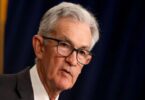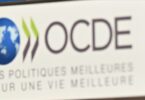F.P. Report
ISLAMABAD: The Pakistan Industrial and Traders Associations Front (PIAF) has asked the government to withdraw the anti-business decision of huge raise in oil products prices, warning the authorities that inflation above six percent could hurt the economic growth and only a prudent approach could keep it in under the control.
PIAF Chairman Faheemur Rehman Saigol said that Rs26 per litre increase in petrol prices would put an additional burden on the industries and general public at a time when they are already hard-pressed with up to Rs7.5 per unit power tariff hike amid unprecedented inflation. He said the trade and industry would start a country-wide protest in case the government did not withdraw the hikes in petroleum and power rates.
The caretaker government on Friday night pushed through another hike in the prices of petrol by Rs26.02 per litre and high-speed diesel (HSD) by Rs17.34 per litre.
The increase brings the price of petrol to Rs331.38 per litre while HSD is Rs329.18 per litre, the Ministry of Finance said in a post on X (formerly Twitter) after midnight.
Most of the transport sector runs on HSD. Its price is considered highly inflationary as it is mostly used in heavy transport vehicles, trains and agricultural engines like trucks, buses, tractors, tube wells and threshers, and particularly adds to the prices of vegetables and other eatables.
Petrol, on the other hand, is mostly used in private transport, small vehicles, rickshaws and two-wheelers and has a direct bearing on the budget of middle- and lower-middle class.
The increase in prices of petroleum products came on the heels of over 27.4 per cent increase in the August rate of inflation that would also have a lag effect on general prices in the country over the coming days and weeks.
At present GST is zero on all petroleum products, but the government is charging Rs60 per litre petroleum development levy (PDL) on petrol and Rs50 each on HSD and high octane blending component and 95RON petrol. The government is also charging about Rs18 to Rs22 per litre customs duty on petrol and HSD. Petrol and HSD are the major revenue spinners with their monthly sales of about 700,000-800,000 tonnes per month compared to just 10,000 tonnes of monthly demand for kerosene.
Faheem Saigol said the industrial and general consumers will be feeling the pinch of high transportation costs as petrol and diesel prices have swelled very high. He strongly condemned the massive hike in petroleum products saying it would fuel the inflationary pressures and push up the cost of doing business — which is already the highest in the region.
He questioned how the existing export orders can be met profitably after the double blow of electricity and petroleum price hikes.
The PIAF chief expressed his concerns that domestic and international demand for Pakistani products would be at an all-time low as inflation has severely affected the purchasing power of the domestic consumers and for international and regional markets, local products have become uncompetitive.
He criticised the massive hike in petroleum prices, which would not only impact industrialists but also exert severe economic pressure on the general public.
He lamented the government for affecting the public’s budget by raising petroleum levies and taxes, following the terms set by the International Monetary Fund.
He said that inflation is on higher side due to the impact of government’s economic policies of soaring fuel rates, enhancing power and gas tariff, depreciating the local currency and imposing exorbitant duties on imported industry raw material.
Faheem Saigol urged the government to take concrete measures for easing out inflation that has further increased due to rise in oil prices and other essential commodities.
He said that oil prices and inflation are closely connected in a cause-and-effect relationship. As fuel rates move up, inflation, which is the measure of general price trends throughout the economy, follows in the same direction upward. On the other hand, if the rates of fuel fall, inflationary pressures start to drop.







